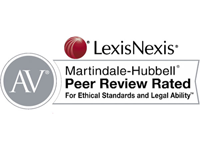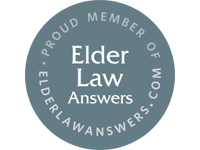Elder Law
Elder law (often referred to as “long-term care planning”) pertains to the unique legal issues of older adults. This may include planning for incapacity, evaluating long-term care insurance, estate planning, Medicaid eligibility, and other important issues.
An old Pennsylvania Dutch proverb reads, “We get too soon old and too late smart.” Typically, many families seek to minimize the tax burden on their families when planning for estate asset distribution. However, for most clients, unexpected health-care events or diagnoses and the resulting expenses of long-term care usually pose far greater peril to financial security than estate taxes. Our objective is to help our senior clients, their caregivers, and their family members efficiently negotiate the labyrinthine and expensive system of long-term care.
“The systems that concern the individuals and families with whom we work can be very complex. Whether it be the Medicaid-funded service delivery system for individuals with disabilities and elderly or the state and federal systems of income and estate taxation, it is incredibly important to be able make these systems more understandable for our clients and easier to navigate.” —Tara Pleat
In this area of our practice we:
- Prepare powers of attorney, health care proxies, and other advance directives;
- Work with financial and insurance professionals to integrate long-term care insurance into a comprehensive estate plan;
- Establish eligibility for Medicaid;
- Draft irrevocable Medicaid trusts;
- Assist with trust funding and asset transfers;
- File Medicaid applications and advise on Medicaid-funded health-care programs, including the Nursing Home and Diversion (NHTD) waiver, Consumer-Directed Personal Assistance Program (CDPAP), the Long Term Home Health Care Program (Lombardi/LTHHCP), as well as state plan home-care services;
- Represent individuals in fair hearings and Medicaid-eligibility proceedings;
- Draft caregiver compensation agreements;
- Develop with geriatric care counselors privately and/or publicly funded home-care plans;
- Establish guardianships for adults who lack capacity; and
- Counsel trustees of revocable living trusts and irrevocable Medicaid trusts on distributions and review annual accountings to determine affect on Medicaid eligibility.















